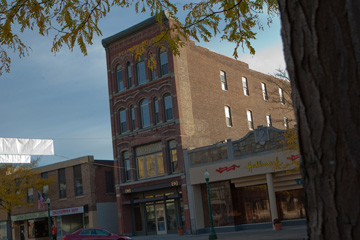
06/15/2015
SUNY Cortland will kick off a monthly series of lunchtime talks addressing issues of economic inequality beginning Tuesday, June 23.
Distinguished Service Professor of Sociology/Anthropology Craig Little will present “Pathways to Opportunity in Cortland County: A Presentation and Conversation” at noon in Room 203 of Main Street SUNY Cortland, located at 9 Main St. in downtown Cortland.
The talk will focus on where Cortland County stands relative to other New York state counties in terms of inequality and opportunities for its citizens, especially young people. Time for discussion will follow the presentation.
The lunchtime series, which is free and open to the public, is sponsored by the SUNY Cortland Pathways to Opportunity Initiative group, which has been participating in the American Democracy Project’s Economic Inequality Initiative since December.
The goal of the initiative is to bring together the area’s campus and community members to study the relationships between economic inequality, public policy, business opportunity, social mobility and civic engagement. Members discuss issues that include student loan debt, a livable hourly wage, and poverty.
Currently, 58 people — including community members, SUNY Cortland faculty and staff members and students — are participating in the Pathways to Opportunity Initiative, which meets monthly. New members can join by contacting Cyndi Guy, community innovation coordinator for the College’s Institute for Civic Engagement.
Additional talks are slated for noon on select Tuesdays throughout the summer. Lindy Glennon, executive director of Cortland County Community Action Program (CAPCO), is scheduled to speak on July 28 and Barbara Barton, an assistant professor of health at SUNY Cortland, will present on August 18.
Talks will continue to be scheduled monthly and updates will be provided.
SUNY Cortland is one of only 30 campuses nationwide selected to participate in the American Democracy Project initiative, which is expected to take three years to complete. For more information, visit the project’s website.